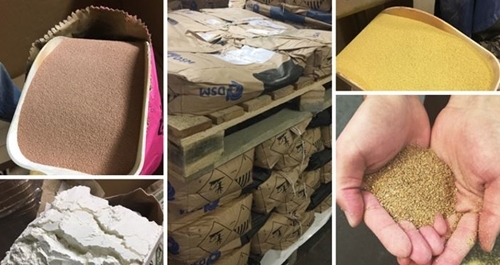Guest blog by Keepers Choice

When preparing for a new season, there is a check list to be followed on management, health and feed to ensure birds are grown to be strong, fit and healthy. The right choice of feed supply needs to be made, but how should the keeper choose?
A simplistic choice could be made on lowest price per tonne, but this could be a false economy both in terms of the feed not supplying sufficient nutrients to achieve the aim of maximum number of good quality birds, and a higher intake and use of feed resulting in a greater overall cost. Some useful pointers in evaluating the true value of the feed are;
• Energy Level Energy is required by the bird for both maintenance of the body and for growth. Furthermore, energy content of the feed influences feed intake. As energy content increases, then feed intake will reduce as the bird meets its energy requirement. This is very important for the value of a feed. A low energy feed will be cheaper than a higher energy feed, but the birds will eat more of the low energy feed and the overall feed cost is likely to be higher.
• Protein Quality The Crude Protein content of the feed can be achieved in many ways. It is important to have feeds that have been formulated with good quality materials and which achieve the desired levels of digestible amino acids. If this is not the case, then part of the nutrition will be wasted and there will be an energy cost to the bird which could result in increased feed intake without any benefit to the birds.
• Mineral Nutrition The feeds need to have targeted levels of Calcium and Phosphorus. For optimum feed quality, the levels of these minerals need to be optimised to meet the needs of the birds. This will result good skeletal development, giving birds with strong legs and wings.
• Vitamin Package A good supply of vitamins is essential to ensure the birds are suitably supported to grow well. Ensuring high levels of vitamins have a multitude of positive effects on the birds. From simply allowing the birds to develop and grow well, through to supporting the immune system and thus keeping the birds healthy, onto interacting with minerals to ensure good bone strength, vitamins play a vital role. Again, it’s possible to have cheaper feeds with lower vitamin levels, but overall performance of the birds will likely be affected and utilisation of the other nutrients in the feed will be reduced.
• Raw Materials Whilst most feeds on the market will be broadly similar in terms of the materials used to make up the rations, there will be some areas of differentiation and it is worth looking at material declarations to ensure a good proportion of high quality whole products are used, with an absence of lower quality by-product materials.
• Physical Quality and Palatability Although important for birds of all ages, this is particularly important for birds in the first few weeks of life, when intakes are low and the value of a good quality crumb or pellet that is attractive to the bird can help to maximise nutrient intake and drive the bird on.
• Summary - When making a choice on feed, it is worth looking beyond the headline price and giving as a minimum a little consideration to the quality of the feed and spending a bit of time considering how the feed could benefit the birds and what the overall cost of nutrition is when feed intake is taken into account. A little bit of time spent in this part of the preparation can pay dividends in the season ahead.
To find out more comprehensive information on our diets click here.